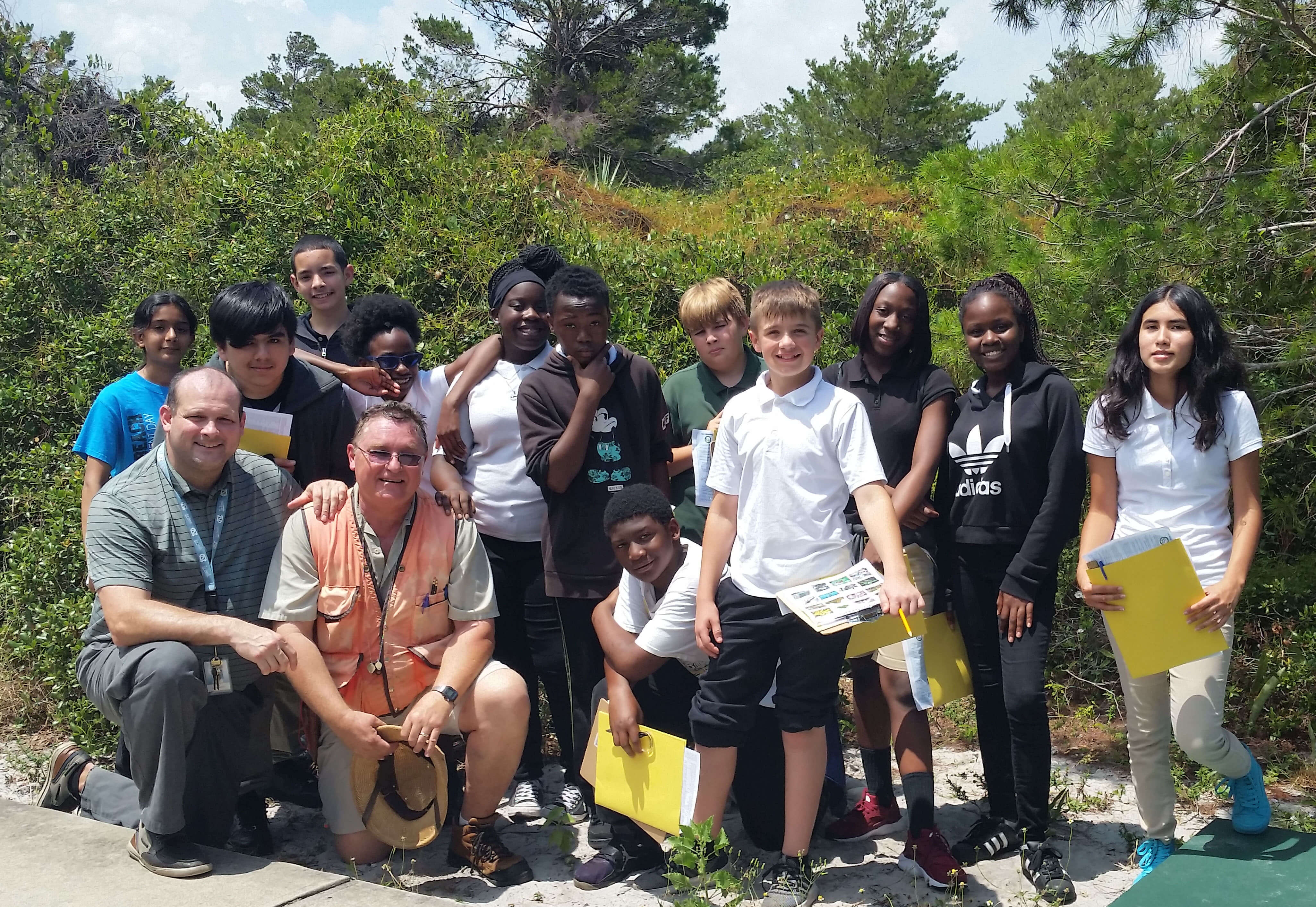Innovative Programming to Promote Education in Parks
Broward County Parks and Recreation's STEAM (Science, Technology, Engineering, Arts, and Math) in Parks program uses students' intellectual curiosity about the world they live in. The goal is that students will learn about and take pride in their natural heritage. Teams of dedicated teachers, engaged students, and knowledgeable park naturalists work together to explore the parks as living laboratories where the native fauna and flora of our subtropical ecosystems are preserved.

Mission:
Broward County Parks and Recreation STEAM program is committed to providing research-based, experiential programming to patrons of all ages to enhance public understanding of the need for long-term, resilient stewardship of our collective natural heritage.
Vision:
To provide innovative programming to encourage investments in renewable energy, sustainable natural resource management practices, and environmental protection, while cultivating community culture, arts, recreation, and life-long learning.
The partnership with the Broward County Public School Board enhances the work of our STEAM in Parks program, designed to share in the school board's mission of educating all students to reach their highest potential.
STEAM in Parks is comprised of visits by schools wherein students participate in field activities associated with natural resource management, such as quantitative environmental characterization, invasive species removal and control, habitat restoration protocols, and use of scientific instruments. STEAM in PARKS field trips focus on a variety of skill sets, including problem-solving, circumscription of a perceived problem, observation and quantitative measurement, formulation of a hypothesis, as well as other research-based proficiencies. Environmental stewardship topics are selected for small student groups to study upon return to their schools. Subsequently, groups formulate presentations on the topic with data and experience from the field coupled with review of information from peer-reviewed scientific publications, which is evaluated by park naturalists in partnership with class teachers.
Schools in Parks is conducted by individual parks, nature centers or natural areas, and consists of specific programs designed to meet the Next Generation Sunshine State Standards for a given grade and discipline. There are 46 Schools in the Parks programs delivered among our five nature centers, 22 natural areas, 16 regional and nine neighborhood parks. School field trips to attend these programs are designed to provide the experiential living laboratory portion for a particular set of learning standards that the class has covered in school. Experiential programs provide students competence and understanding of scientific instruments and data, learning field sampling methods for soils, vegetation and fauna, and calculation of relevant environmental indices for the habitat. Such topics as life cycles, vegetation types, energy and trophic levels, and interdependence of species, including commensalism, parasitism, mutualism and others.
In addition, we have a weekly one-minute YouTube series that highlights our wildlife for teachers and students called Wildlife Wednesdays. View it here.
For more information about programs, contact Dr. John Pipoly at ParksEnvEd@Broward.org. We have provided the Next Generation Sunshine State Standards, locations, and descriptions of the Schools in Parks programs for annual programs.
